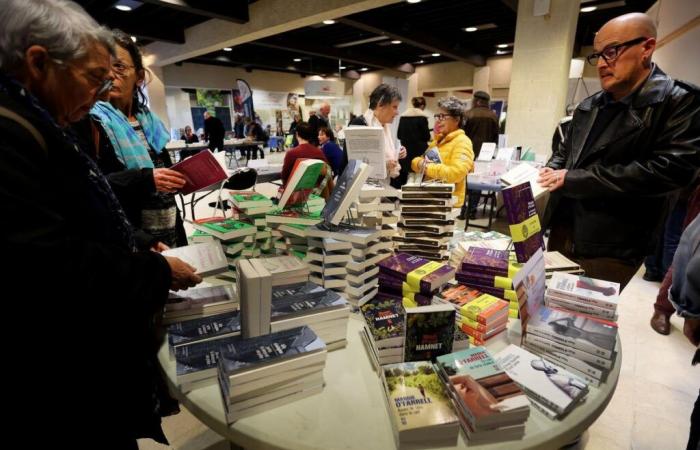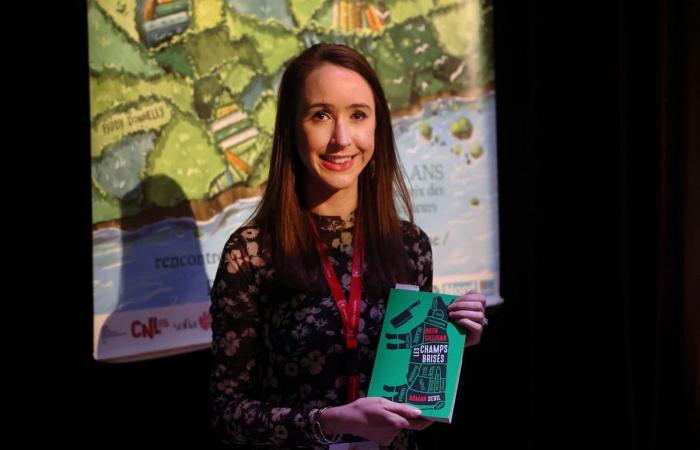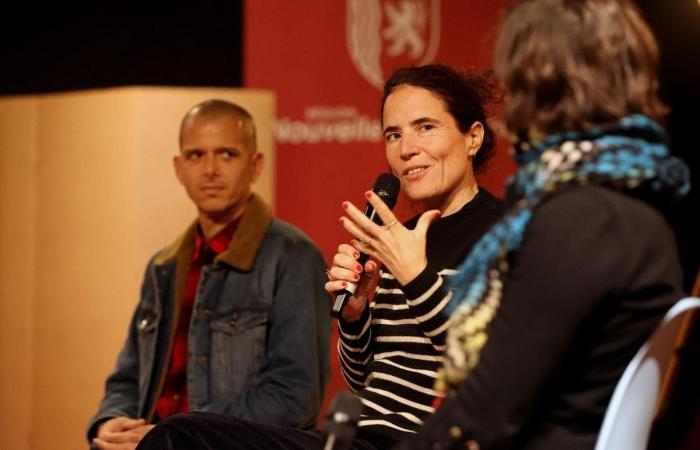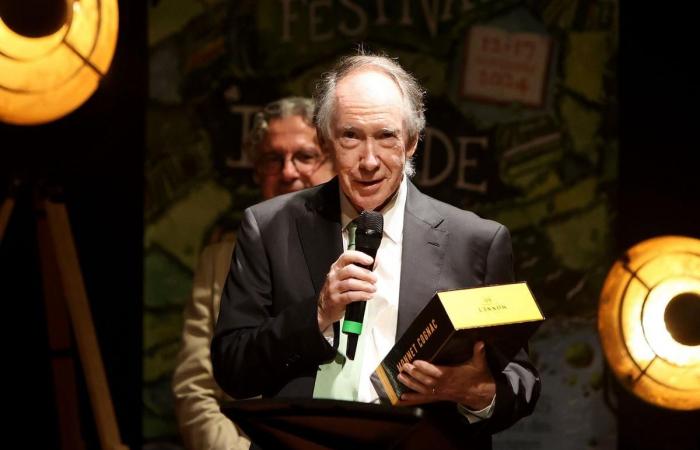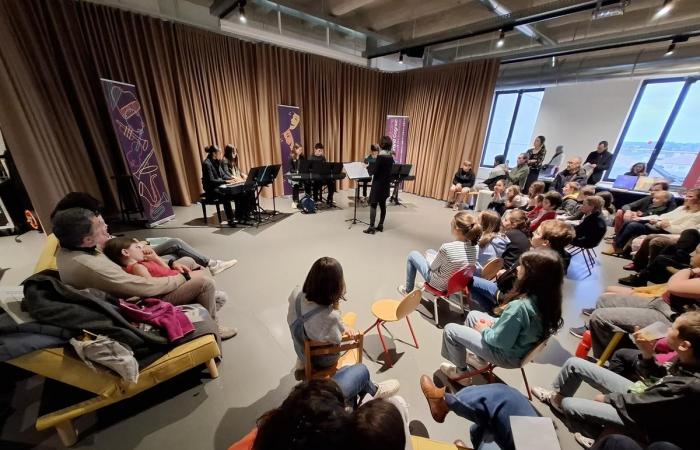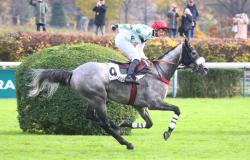“I am a satisfied president,” confided this Sunday, just before the closing concert, Lydia Dussauze. Ireland truly excited the public, because it is a country that speaks to our imagination. Its landscapes, its music, its legends, and now, we know better its literature, which is particularly rich. »
“Ireland excited the public, because it is a country that speaks to our imagination. »
The Irish music group Imrama closed the festival in style on Sunday evening, in front of a full auditorium.
Christophe Barraud
This success was initially popular, with large numbers of the public coming to attend the various – and numerous – events. “The rooms were full everywhere, even more than last year when we had Amélie Nothomb,” rejoices the vice-president of LEC, Patrick Declein.
(Arch) full rooms
The (especially) Irish authors aroused enthusiasm, whether for the dedications or their round tables, which sometimes blew up the gauges, like the meetings with Ruth Gilligan – the winner of the readers’ prize ( read opposite) and Michelle Gallen in a Marguerite-d’Angoulême room that was too small, or with Jan Carson at Meukow. “And for the first time, we had to open the Avant-Scène balcony for the readers’ prize ceremony because there were so many people,” says Sophie Léonard, the festival’s – delighted – programmer.
C.B.
Ruth Gilligan won the 2024 Readers’ Prize for her book “The Broken Fields”.
If Ireland was a hit – which the booksellers confirm, like Coralie Meïsse, from Texte Libre, which evokes “a real curiosity of the public, and not only for the award-winning books” – all the meetings were successful. find their audience. With, again, full rooms. We are thinking in particular of the presentation of the Jean-Monnet prize, the highlight of the weekend, on Saturday evening, with the immense English author Ian McEwan; or the meeting with the author Mazarine Pingeot and the Moroccan author Abdellah Taïa, who touched the public’s heart, by revealing their childhood wounds.
Christophe Barraud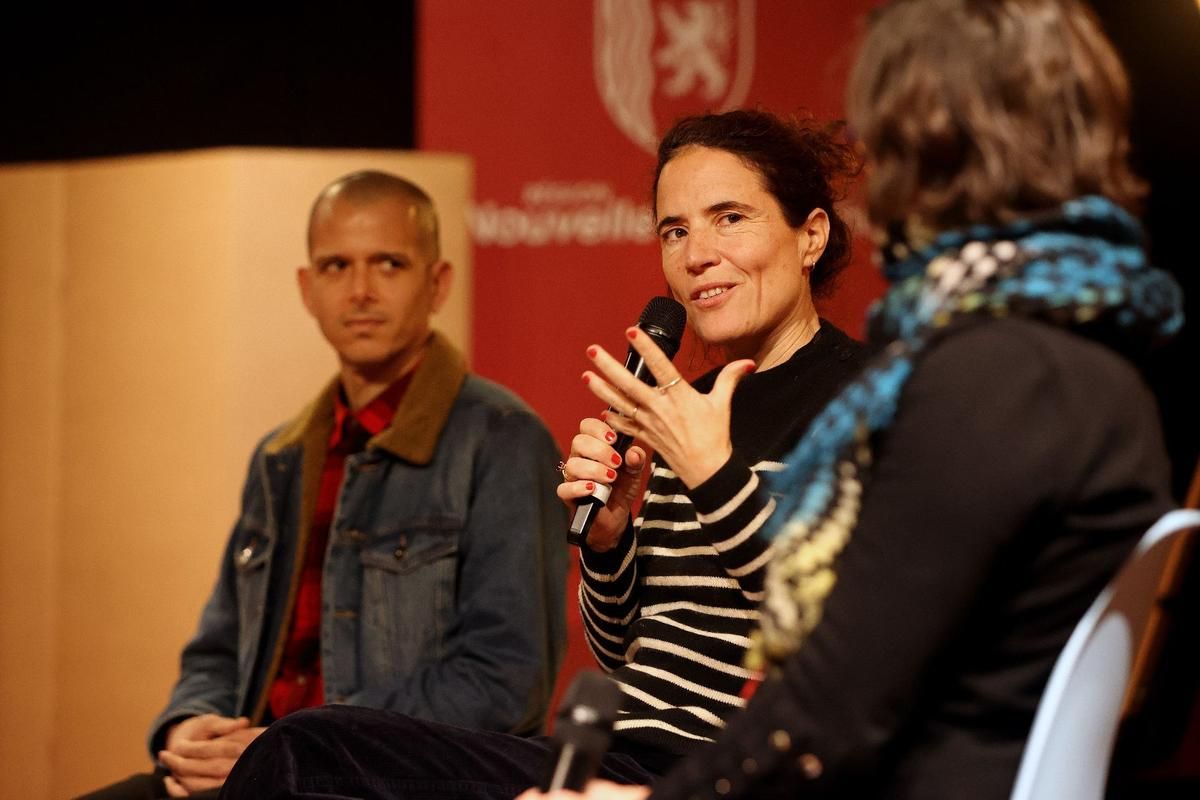
The debate with Abdellah Taïa and Mazarine Pingeot, one of the highlights of the festival.
Christophe Barraud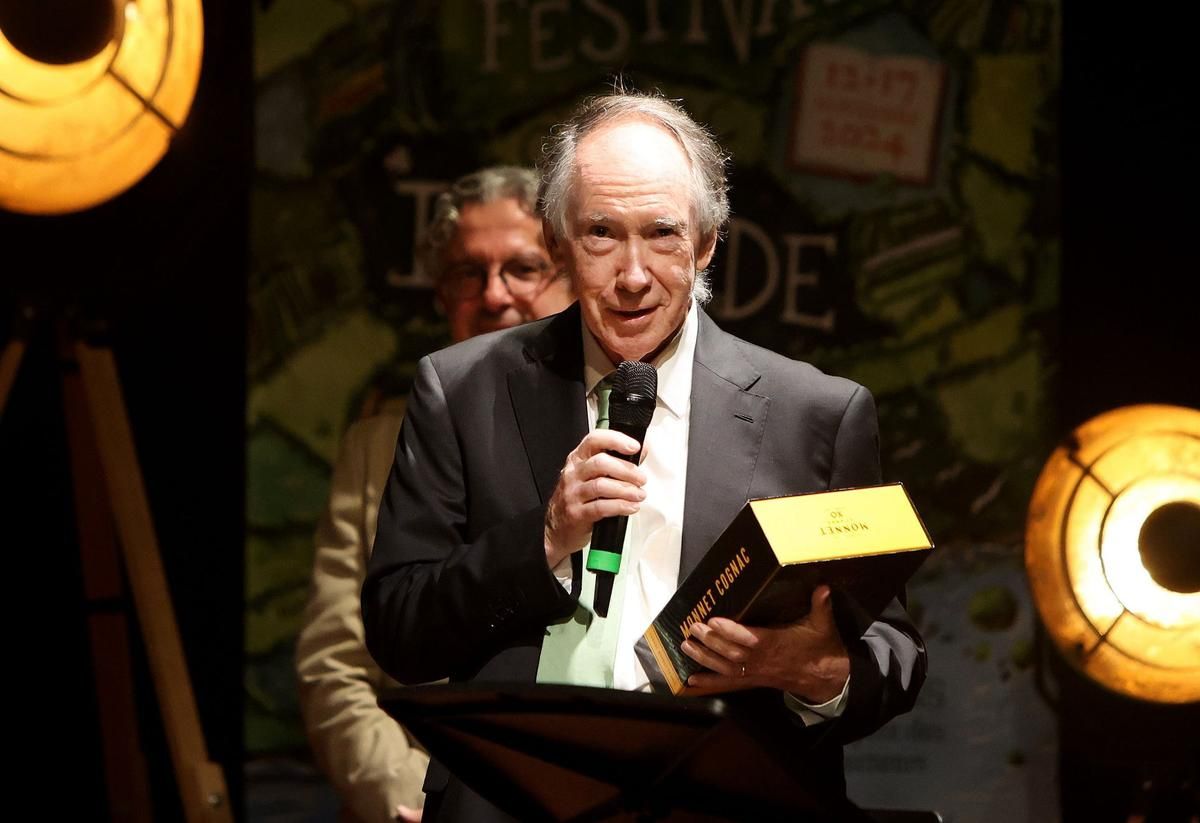
Ian Mc Ewan, Jean-Monnet Prize for European Literature, combined finesse, erudition and humor.
Generally speaking, everyone praised the quality of the speakers and presenters, like the former journalist Roger Faligot, who was fascinating when telling the story of Charlie Kilmaine, “Bonaparte’s Irishman”, or to talk about espionage with Emmanuel Villin. The expertise provided by the Grand Continent magazine also helped to raise the level of the debates.
Member of Ruelle’s reading club, Café Béné, Dany Chiron was passionate about this edition. “The exchange with the Irish Readers’ Prize authors was fascinating. I also really liked the meetings around geopolitics, which allow us to contextualize. »
Switzerland in 2025
The mayor of Cognac, Morgan Berger, also followed these discussions with interest, particularly those devoted to Jacques Delors and the consequences of Trump’s election for Europeans: “It was remarkable. »
And what about the youth center at the Martell Foundation and the comic strip at Récollets, which also attracted many young people.
CL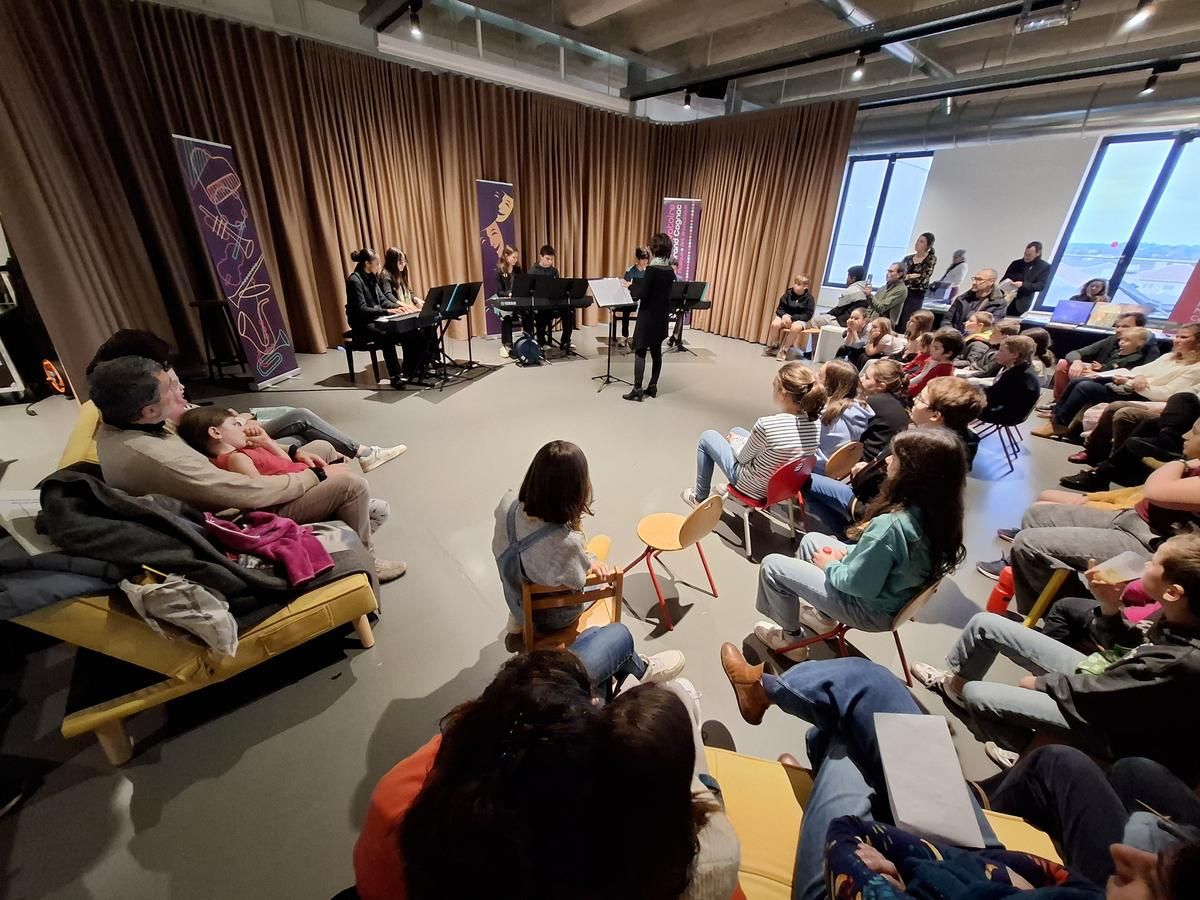
A concert of Irish music was offered by the Grand Cognac conservatory at the Martell Foundation this Sunday.
We can bet that the organizers will do just as well next year for the 38e edition, whose guest of honor will be, for the first time, Switzerland. “A neighbor we know without knowing him. It will be a great adventure,” promises Lydia Dussauze.
Ruth Gilligan, 2024 Readers’ Prize
Rarely has the Readers’ Prize been more contested than this one. “It was extremely close between the four, neck and neck,” said Sophie Léonard, the festival programmer, just before revealing the name of the winner: Irishwoman Ruth Gilligan.
The author, a native of Dublin, won the hearts of this prize, which was attended by more than 2,000 readers and 150 libraries, with her novel “Les Champs Brés” (“The Butchers” from its original title, “Les Bouchers”). ), published by Seuil. “A poignant novel that introduces us to a little-known Ireland,” describes The Guardian.
This book tells the story of Una, 12 years old, daughter of one of the eight butchers who travel across Ireland to slaughter cattle, in accordance with an ancestral tradition. Lonely and shy, the young girl is ready to do anything to become one of them.
Released in 2020, “The Broken Fields” is the fifth book by Ruth Gilligan, 36, but the first translated into French (by Élisabeth Richard Berthail).
Very applauded when her prize was announced, she said she was “very surprised”. “I am very honored,” she said in French.

